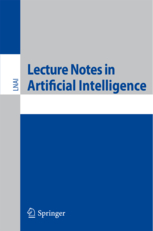All accepted papers must be presented by one of the authors who must register for the conference and pay the fee.
Authors are invited to submit manuscripts written in English. All submissions will be refereed by experts in the field based on originality, significance, quality and clarity. All contributions must be original, should not have been published elsewhere and should not be intended to be published elsewhere during the review period.
HAIS’22 proceedings will be published by Springer in its series of Lecture Notes in Artificial Intelligence – LNAI (part of its prestigious Lecture Notes in Computer Science – LNCS series). All submissions will be refereed by experts in the field based on originality, significance, quality and clarity. Every submitted paper to HAIS’22 will be reviewed by at least two members of the Program Committee.
Templates
Authors should consult Springer’s authors’ instructions and use the proceedings templates, either for LaTeX or for Word, for the preparation of their papers. Springer encourages authors to include their ORCIDs in their papers. In addition, the corresponding author of each paper, acting on behalf of all of the authors of that paper, must complete and sign a Consent-to-Publish form. The corresponding author signing the copyright form should match the corresponding author marked on the paper. Once the files have been sent to Springer, changes relating to the authorship of the papers cannot be made.
Lecture Notes in Artificial Intelligence
 Series: Lecture Notes in Computer Science Series Editors: Goebel, R., Tanaka, Yuzuru, Wahlster, W.
Series: Lecture Notes in Computer Science Series Editors: Goebel, R., Tanaka, Yuzuru, Wahlster, W.
LNAI was established in the mid-1980s as a topical subseries of LNCS focusing on artificial intelligence.
This subseries is devoted to the publication of state-of-the-art research results in artificial intelligence, at a high level and in both printed and electronic versions – making use of the well-established LNCS publication machinery. As with the LNCS mother series, proceedings and postproceedings are at the core of LNAI; however, all other sublines are available for LNAI as well.
The topics in LNAI include automated reasoning, automated programming, algorithms, knowledge representation, agent-based systems, intelligent systems, expert systems, machine learning, natural-language processing, machine vision, robotics, search systems, knowledge discovery, data mining, and related programming languages.